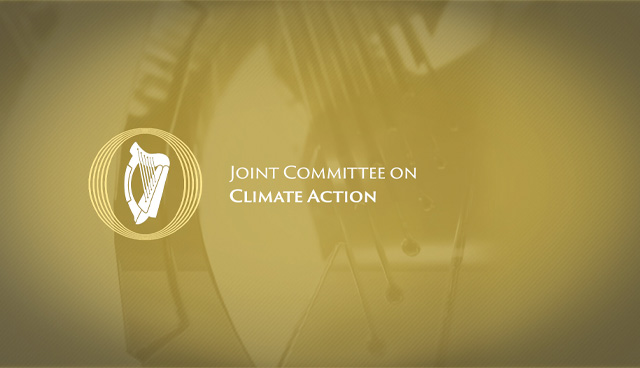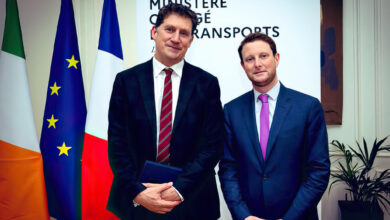Climate Action Bill: Pre-legislative scrutiny

Having completed its pre-legislative scrutiny (PLS) of the draft Climate Action Bill, the Oireachtas Climate Action Committee published its report of recommendations in December 2020. With the Bill set to be published imminently, Environment and Climate Minister Eamon Ryan TD has indicated that the Government will accept most of these amendments.
Pre-legislative scrutiny is the process undertaken prior to the formal drafting of a bill. It occurs when the general scheme of a bill is published by a minister and is then referred to the relevant Oireachtas committee. PLS was introduced into the legislative process in 2011 and confirmed by the 32nd Dáil in 2016.
In October 2020, Minister for the Environment, Climate and Communications Eamon Ryan TD submitted a draft of the Climate Action and Low-Carbon Development (Amendment) Bill 2020 to the Oireachtas Joint Committee on Climate Action for the purpose of PLS.
The draft Bill is intended to “strengthen the statutory framework for more effective governance of the State’s climate objectives” by updating the Climate Action and Low Carbon Development Act 2015 and establishing a national zero carbon target for 2050. It will also supersede the National Mitigation Plan contained in the 2015 Act. Key elements of the draft Bill include:
- a national climate 2050 objective;
- annually updated climate action plans;
- long-term strategies updated every decade;
- five-year carbon budgets;
- an enhanced role for and amended composition of the Climate Change Advisory Council (CCAC);
- augmented Oireachtas oversight of climate policy.
Concluding the pre-legislative scrutiny process, which included contributions from department officials and expert stakeholders at seven public sessions, followed by 13 additional committee meetings, the Climate Committee launched its report, Pre-Legislative Scrutiny on the draft of the Climate Action and Low-Carbon Development (Amendment) Bill 2020, in December 2020.
Chair of the Climate Committee, Brian Leddin TD stated: “We were conscious of the wide-ranging impacts of climate policy and the urgency of the climate crisis, so the Committee confined itself to scrutiny of the proposed legislative provisions.
“Our objective in seeking inputs from experts was to focus on legislation and this report also maintains this legislative focus, keeping to current and potential textual provisions, rather than exploring climate policy more generally.”
Eight key themes emerged from the public hearings, across which the committee made over 70 recommendations.
- Language used in the Bill: Committee members and witnesses criticised the “lack of clarity around definitions”, as well as the use of “vague or aspiration language” throughout the Bill. This, the committee warned, could “prove problematic in ensuring the legislation drives the changed required”. One example provided is the use of ‘pursue’ rather than ‘pursue and achieve’ carbon neutrality.
- Role of the Climate Change Advisory Council: Members of the committee suggested that there be “stronger and more prescriptive provision for specific representation in the CCAC”, such as climate scientists, biodiversity experts, legal expertise and with due regard to age and gender balance. Former chair of the CCAC, John FitzGerald indicated that a better-resourced secretariat is required if the Climate Council is to deliver its proposed function relating to the carbon budget process.
- Target structure: Committee members asserted that overly large decarbonisation ranges could disincentivise ambition. Meanwhile, the draft Bill fails to reference Ireland’s obligations under international agreements, EU emissions targets or the Programme for Government’s average annual reduction target of 7 per cent until 2030. An additional potential flaw within the draft Bill is the omission of explicit requirements for climate action plans to meet carbon budgets. Likewise, the draft legislation omits specific interim targets.
- Greenhouse gases including biogenic methane: Members highlighted the absence of specific provision for treating different greenhouse gases in distinct carbon budgets. There is also an uncertainty as to which greenhouse gases are to be included in carbon budgets.
- Nature-based solutions and biodiversity: Committee members suggested that there should be “specific mention” of biodiversity in the Bill. The Committee also emphasised that the “rapidly changing environment” and that assumptions underpinning the draft Bill may require revision. Through the incorporation of research, performance measurement and monitoring, effectiveness could be reviewed in real time. The Committee also suggested that additional research be undertaken to determine how much how much carbon is stored in components of the natural landscape.
- Carbon dioxide removal and negative emissions technologies: The Committee notes that while the draft Bill makes reference to technological innovation and the sequestration of carbon dioxide, it does not indicate the proportion of emissions to be compensated for by technological sequestration solutions. Furthermore, the Committee suggests that offshore mitigation is not clearly defined and it is unclear how the draft Bill approaches offsets or credits.
- Just transition and climate justice: Committee members requested a submission from the International Labour Organisation (ILO) and Think-tank for Action on Social Change (TASC) to inform references to just transition within the legislation. Members also suggested that more emphasis be given to public consultation in the draft Bill.
- Accountability including for shortfalls: Members of the Committee highlighted the absence of specific consequences and a requirement for corrective measures if emission reduction targets are not met.
Outlining the collaborative approach adopted by the Climate Committee, Leddin explained: “This committee has undertaken and completed an extensive exercise in pre-legislative scrutiny. A range of expert witnesses appeared before us and others sent detailed written submissions… The scale of the challenge is so great that it must be owned by all parties and none. The hallmark of this report is consensus and cooperation.”
“The scale of the challenge is so great that it must be owned by all parties and none. The hallmark of this report is consensus and cooperation.” Brian Leddin TD, Chair, Joint Committee on Climate Action
The core recommendations within the committee’s report are:
- the Bill should establish clear legal obligations and ensure legal accountability;
- the Climate Change (Emissions Reduction Targets) (Scotland) Act 2019 should be further explored;
- the Minister should either address in the Bill or revert to the committee with a plan to ban the importation of fracked gas and to ban LNG terminals in 2021;
- the Bill must be accompanied by climate resilience measures;
- while focused on mitigation, the Bill should empower the CCAC and oblige future governments to plan for adaptation;
- implementation of the committee’s views on just transition, climate justice, biodiversity and nature-based solutions should be included in the climate planning and reporting mechanisms provided for in the Bill; and
- the Bill should comply with the Aarhus Convention (UNECE Convention on Access to Information, Public Participation in Decision-making and Access to Justice in Environmental Matters).
It is anticipated that many of the recommendations made by the committee will be accepted by government.
Speaking with eolas Magazine and commenting on the committee’s recommendations, Minister Ryan says: “I think [the Climate Committee] did a very good job. Brian Leddin, the chair of the committee, did really well to get everyone together to issue their report. We’re working on that now and will come back to introduce a series of amendments. We won’t be accepting every amendment, but a good chunk of them we will. I think that will improve and strengthen the Bill.
“More than that and more importantly, it continues us on the path of political cooperation on climate. You turn this into a politically divisive fight and it undermines the effort. We cannot afford to do that. We cannot afford to wait; we need to be collaborative.”





